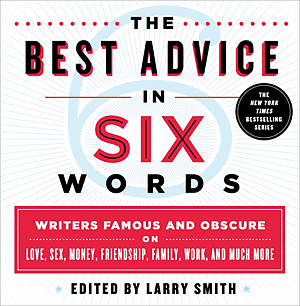Happy New Year.
At last, 2009 is history. Finally in the books. The whole year was quite a ride, unforgettable, with a bunch of things happening in all different kinds of directions. At the center of my year was Under Angels, a project that began as a 2009 new year’s resolution.
My goal for for Under Angels and 2009 — which I discussed a year ago here — was to take the story’s outline (written in 2008) and flesh it out so that I can see the piece in its entirety. I needed to tell UA to myself, get the whole thing in front of me, and figure out where to go from there. Until that happened, the story was only going to continue occupying space in my mind as chaos.
The new year’s resolution part is now done.
From here, I’ll be taking a break from Under Angels for a few months. I’ll then revisit it, prepare the manuscript, and then adapt it as a screenplay. But first, with the blovel portion of the project finally in the can, there are a few things I want to note before I step away for a few. Not only for my own future reference, but for any other storyteller interested in attempting such a thing.
1. Believe in your material. Make sure you love it, because you’re gonna be sleeping with it seven nights a week for a year. Don’t worry if anybody else likes it (that’s the last thing you should be worrying about), but make damn sure it kicks your own ass. If you doubt your stuff, it’ll show.
2. Outline! Structure is everything. Before you even start fleshing out your story, you have GOT to know where you’re going. Writing a story without an outline is like trying to build a house without plans. On sand.
Do what works for you. I installed an online bulletin board/forum (phpBB) for myself in a back door of my site, locking it down with a password. It became my own private digital file cabinet. I first created a thread for each of the 26 chapters; a virtual manila folder for each chapter. These forums facilitated organized conversations with myself, giving me a place to log new ideas and expound on existing ones. (e.g. When I had a new idea for Chapter M, I’d simply post a reply in the Chapter M forum. If I didn’t do this, the idea would be lost.) I only used the 26 threads as a starting point; many threads got branched off into other threads. There were always times where I consolidated two or more threads into one thread, with the ultimate goal of writing the chapter. The point of all this is to capture your ideas and put ’em in a cage so that you can grab ’em at game time.
Yes, mild insanity can be a good thing when it comes to productivity.
WARNING: If you don’t have a story outline yet, then you ain’t ready. Spend this year creating your outline, and do the blovel next year.
3. Cancel your cable television. Or your dish. Or whatever you have. You ain’t gonna need it. You’ll also save money. The only time I felt like I missed my cable was when the Dodgers made the playoffs in October. But there are always alternatives. Hit a bar, or visit a neighbor who knows what you’re up to. It’s a good way to work in some face-to-face relationships. And you never know how much a random conversation can inspire your story.
RELATED: Cancel Netflix. Or, at the very least, demote to the bare minimum plan. It’s all you’ll need, even if you like movies. I took my Netflix plan down to a two-per-month thing, and still ended up with a Jodie Foster flick sitting on my table for eight weeks.
4. Get the beats down first. Like music, every piece of narrative has a certain rhythmic backbone to it; the structure that holds all the flesh and blood together. A chapter is never written from beginning to end in one shot, but instead consists of layers, much like multitrack recording. The first part of that process is laying the rhythm down, the “he said, then he did, then she said, then she did” groove of the thing. Without the bones there, you’ve got no place for flesh.
5. Find your routine. This one’s an extension of #4. Writing a long piece of multichapter fiction is an awful lot like running laps around a race track. The sooner you find your pace, the better. For me, I was on the two-week cycle, with my schedule requiring that I post a new chapter every other Thursday. After posting a chapter, I’d usually give my eyes the following Friday off, aiming to have the next chapter’s beats thrown down by Monday night. By Wednesday at the latest — which is a week from the publish date — it’s time to get in there and start fleshing. Just get it down, as the beats dictate, without editing. Print out what you have, sleep on it, and then read the hard copy with a pen. Make your changes, go back to the computer, apply your changes, and the print it out again. Sleep on it. Repeat this procedure about four or five times. I personally found that I couldn’t do more than one critical read-through in a single day and be effective; I needed a night of sleep in between each one.
This requires some discipline, and perhaps a bit of perceived social flaking. Just don’t forget to walk the dogs. Lots of magic happens in your head when you walk the dogs.
6. Have at least one trusted proofreader. Important. Not just an editor to mechanically go through your drafts, but a willing audience member who you can test your story on. You’ll already be extremely close to our own material by default, and will inevitably overlook certain minute details the reader needs in order to stay on your page. As the storyteller, remember that not everybody knows what you know, and it’s your job to change that. Your proofreader will enable you to gauge the effectiveness of what you’re communicating to the world. Having a proofreader is as important as having a designated driver.
It also helps if your proofreader is funny, literary-minded, super-smart, and hot.
7. Give yourself permission to put off the other things in life. Seriously. A year’s a long time, but it’s also not. If you’re gonna bang this story out in a single calendar year, understand that some things will just need to wait until next year. And you will feel many unfinished projects looming, bothering you in the back of your mind. The neglected garage, the disheveled file cabinet, the wall lamp you still haven’t hung, the back room that’s turning into a junk drawer, etc. LEAVE IT. You’ll get to it in January. It ain’t going anywhere. Allow yourself to use the blovel as an excuse. It’s a good one.
Besides, when January comes, you’ll be delighted at the idea of finally cleaning out that garage.
8. Remind yourself to stop being surprised by reality. I can’t even count how many times over the course of the year I found uncanny parallels between my reality and my fiction, whether it was with people I met, things I overheard, things my dog did, natural occurrences, medical issues, public events, and so on. It got downright creepy at times, and I’ll probably write about it one day.
Know that the universe has its own way of working, and trying to understand everything will only wear you out, throwing your mind into a pointless whirlwind. Just tell your story. That’s all. You’ll have plenty time to trip out later. (See #7.)
9. “Write drunk, edit sober.” My friend Larry told me that, perhaps tongue-in-cheek. But it’s true. Especially the latter.
10. There will always be something else to say.












Comments on this entry are closed.